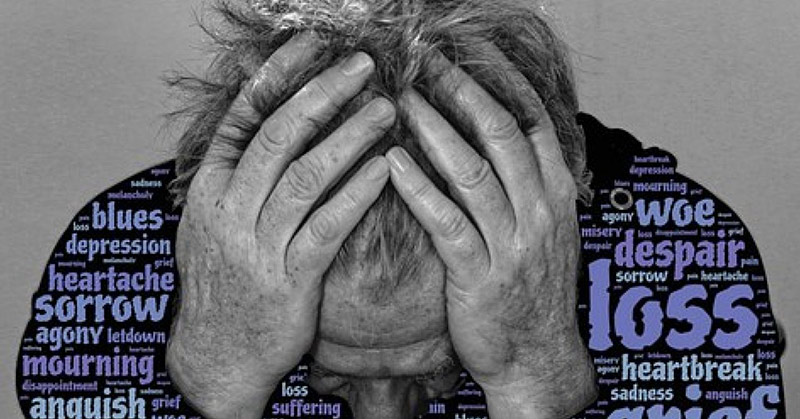Visiting a grieving person is always an emotional call to make, especially when you have a close relationship with the person. You may not know the deceased so well, but the fact that someone you care about is going through a lot of pain would hurt you too. The memories, the pain of loss, the grief, and the words of condolence all come together to create an atmosphere of melancholy. However, with the right words, you could lift the souls of the bereaved and give them hope that they’ll find happiness again. Words, if used properly, can get through anything or anyone and effect a change in moods and disposition.
Sadly, we’re often using cliché expressions when we visit people who are grieving, usually saddening them further.
It’s not fair to just say, “I’m sorry for your loss,” and expect the bereaved to reply with a heartfelt “Thank you.” Imagine how they’d feel if a hundred people use the same sentence to condole with them. Part of the purpose of a funeral serves or a condolence visit is to uplift the bereaved and give them a chance to mourn with people who would lift their souls. When everyone starts saying the same emotionless sentence (even if they are truly hurt by your loss), the ceremony would become more painful and less uplifting.
Below are a few reasons why “I’m sorry” does not always fit the context [1].
You didn’t do anything wrong
While “I’m sorry” can be used to express sadness and sympathy, the more common use is for expressing shame or remorse about something you’ve done wrong. The ambiguity of the sentence makes it unsuitable for condoling with a grieving person. You’re not responsible for their loss, so why use a phrase that could actually mean you’re apologizing?
A lot of people can become so irritated by the cliché expression that they’d point it out to other guests during a speech. Saying, “I’m sorry for our loss” is like a seven-segment display in a bank reading, “Thank you for banking with us.” It’s bland, emotionless, and everyone who loves someone and sympathizes with them can do better than that.
They didn’t do anything wrong, either
Telling someone you’re sorry for their loss may bounce off as many other awful ideas. Although a person can say, “I lost my father last year,” to avoid saying, “My father died last year,” it’s not the same thing as using the word ‘loss.’ ‘Loss’ is more encompassing, more solidifying, and it makes the whole situation sound too absolute, which may not be right for the bereaved at their current stage of grief.
It sounds a lot like saying, “I’m sorry you lost your ring at the park.” A ring lost at the park is most likely gone forever and won’t be found again. The person is expected to move on and shove all thoughts of the ring away. “I’m sorry for your loss,” somehow communicates the same feeling.
In essence, the sentence is so largely unclear and ambitious that it’s better everyone just stopped saying it.
Better things you can say
I was at a funeral last year where the daughter of the deceased was up-front about her dislike of, “I’m sorry for your loss.” She said in her speech that while she’s grateful for everyone’s presence, time, and kind words, she’d really appreciate it if no one said, “Sorry for your loss.” She didn’t want to come off as rude but it was going to make her feel worse.
Everyone came up with something else to say to her, and she felt generally better at the end of the day. However, we mustn’t wait for a grieving person to ask before we know it’s just not okay to just say you’re sorry. We should add more emotion and compassion to our words, to help them start the healing process.
You also don’t have to say one sentence or a miserly phrase. A grieving person would appreciate kind words genuinely coming for your heart:
You could hold their hands or kiss the back of their palm and say:
Please accept my condolences. I truly feel your pain and I know how you must feel right now, but I want you to know that you and your family are in my thoughts and prayers. Can I call you next week to check on you?
It’s so sad that you’re going through this right now. Your mom, bless her kind soul, wouldn’t want you to suffer so much. You’re going to be okay. I want you to know that I’m here for you.
My favorite memory of your dad was when we had that backyard barbecue party. He treated me as if I was family. I’m glad to have known such a person.
There are no words to tell you how deeply sad I am that your grandfather has passed on. I wish I could take away your pain, but I know you’re going to get through this. We’re all in this together. Let me know if there is anything I can do for you.
I’ll miss Joe’s smile and hearty laughter. He may be gone but the memories live on. I may not be able to fully express how much my heart aches for you, but I want you to know that everything will be okay.
Jane lived a good life. We’ll all miss her terribly, smiles and hugs and all. How are you holding up?
Don’t be so hard on yourself. I know you feel you should have been there’re more but you did your best. Your grandmother loved you, you loved her, and that’s all that matters. She wouldn’t want you beating yourself up so much. You’ll get through this.
Angel touched so many lives and brought a lot of people joy. She left her footprints in the sands of time and will live on in many hearts. Please accept my condolences, I know it hurts but you’ll be all right.
Sources
- Ed Preston. 3 Reasons Why We Need to Stop Saying, “I’m Sorry For Your Loss.” The Elephant Journal. https://www.elephantjournal.com/2017/04/why-we-need-to-stop-saying-im-sorry-for-your-loss/. Retrieved 18-02-2020
- Admin. 6 Hard Truths About Losing A Parent. The Hearty Soul. https://theheartysoul.com/6-hard-truths-about-losing-a-parent/. Retrieved 18-02-2020

